Jerry Lin

The Latest
-
U.S. Wholesale Inflation Jumps on Tariff-Linked Costs, Stirring Fears of Consumer Price Impact
U.S. wholesale prices surged in July at their fastest pace in more than three years, driven by higher costs tied to President Donald Trump's tariffs, raising concerns that inflationary pressures could soon filter down to consumers. 
U.S. wholesale prices surged in July at their fastest pace in more than three years, driven by higher costs tied to President Donald Trump's tariffs, raising concerns that inflationary pressures could soon filter down to consumers. -
Crypto Exchange Bullish Soars 84% on IPO Launch, Market Cap Tops $10 Billion Amid Investor Rush
Bullish (BLSH) surged in its Nasdaq debut on Wednesday, capping its first trading day with an 83.8% gain from its initial public offering price and lifting the cryptocurrency exchange operator's market capitalization above $10 billion, according to Reuters. Shares closed at $68, then climbed another 11.2% in after-hours trading. 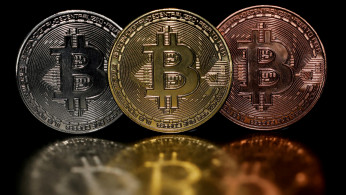
Bullish (BLSH) surged in its Nasdaq debut on Wednesday, capping its first trading day with an 83.8% gain from its initial public offering price and lifting the cryptocurrency exchange operator's market capitalization above $10 billion, according to Reuters. Shares closed at $68, then climbed another 11.2% in after-hours trading. -
U.S. July Deficit Jumps 19% to $291 Billion Despite Record $27.7 Billion in Trump Tariff Revenue
The U.S. budget deficit widened to $291 billion in July, up 19% from the same month last year, despite a record surge in tariff revenue from President Donald Trump's trade policies, according to Treasury Department figures released Tuesday. 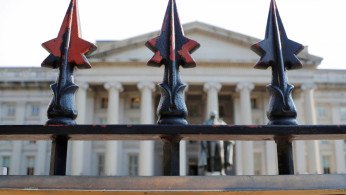
The U.S. budget deficit widened to $291 billion in July, up 19% from the same month last year, despite a record surge in tariff revenue from President Donald Trump's trade policies, according to Treasury Department figures released Tuesday. -
Gold Falls as Tariff Uncertainty and Inflation Data Loom Over Markets
Gold prices tumbled Monday as investors awaited clarity from the White House on potential bullion tariffs, erasing gains from last week's rally and rattling precious metals markets. 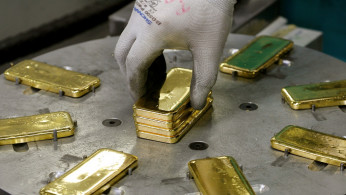
Gold prices tumbled Monday as investors awaited clarity from the White House on potential bullion tariffs, erasing gains from last week's rally and rattling precious metals markets. -
Goldman Warns U.S. Consumers to Shoulder 67% of Tariff Costs by October, Inflation to Hit 3.2%
U.S. consumers are set to bear a sharply higher share of President Donald Trump's new tariffs, with economists warning the measures could push inflation well above the Federal Reserve's 2% target by year-end. 
U.S. consumers are set to bear a sharply higher share of President Donald Trump's new tariffs, with economists warning the measures could push inflation well above the Federal Reserve's 2% target by year-end. -
Gold Futures Hit Record After U.S. Slaps 39% Tariff on Swiss Bullion Bars
Gold futures surged to a record high Friday after reports that the United States had imposed tariffs on imports of 1-kilogram bullion bars, a move that struck at Switzerland's dominant refining industry and widened the gap between U.S. futures and spot prices. 
Gold futures surged to a record high Friday after reports that the United States had imposed tariffs on imports of 1-kilogram bullion bars, a move that struck at Switzerland's dominant refining industry and widened the gap between U.S. futures and spot prices. -
China’s July Exports Jump 7.2% as U.S. Tariff Truce Nears End, Trade Surplus Hits $683.5 Billion
China's exports surged 7.2% in July compared to a year earlier, outpacing economists' expectations and providing a short-term boost as Beijing races to ship goods ahead of the expiration of a fragile tariff truce with the United States. Imports also rose 4.1%, their strongest gain in 12 months, customs data showed Thursday. 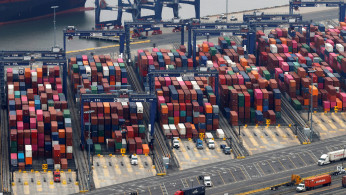
China's exports surged 7.2% in July compared to a year earlier, outpacing economists' expectations and providing a short-term boost as Beijing races to ship goods ahead of the expiration of a fragile tariff truce with the United States. Imports also rose 4.1%, their strongest gain in 12 months, customs data showed Thursday. -
Trump Doubles India Tariffs to 50% Over Russian Oil Ties, Threatening $87 Billion in Trade
President Donald Trump has ordered a 50% tariff on Indian imports, citing New Delhi's continued purchases of Russian oil and collapsing trade negotiations, in a dramatic escalation that could upend $87 billion in annual commerce between the two nations. The new import taxes-an additional 25% stacked atop existing duties-will take effect within 21 days, according to an executive order released Wednesday. 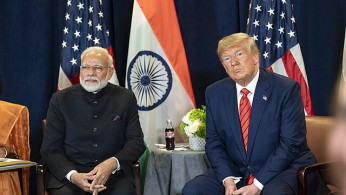
President Donald Trump has ordered a 50% tariff on Indian imports, citing New Delhi's continued purchases of Russian oil and collapsing trade negotiations, in a dramatic escalation that could upend $87 billion in annual commerce between the two nations. The new import taxes-an additional 25% stacked atop existing duties-will take effect within 21 days, according to an executive order released Wednesday. -
EU to Suspend $3 Billion in U.S. Tariff Countermeasures for Six Months
The European Union will suspend its planned retaliatory tariffs on U.S. goods for six months, following a July 27 agreement between European Commission President Ursula von der Leyen and U.S. President Donald Trump. The decision halts two waves of countermeasures that were set to begin August 7, targeting U.S. steel, aluminum, and automotive exports. 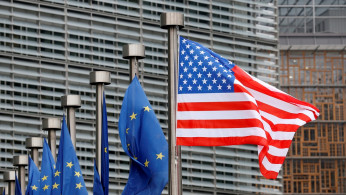
The European Union will suspend its planned retaliatory tariffs on U.S. goods for six months, following a July 27 agreement between European Commission President Ursula von der Leyen and U.S. President Donald Trump. The decision halts two waves of countermeasures that were set to begin August 7, targeting U.S. steel, aluminum, and automotive exports. -
Oil Falls 2.6% as OPEC+ Adds 547,000 Barrels Daily Amid Rising Global Inventories
Oil prices dropped sharply Monday after OPEC+ announced a fresh production increase of 547,000 barrels per day for September, signaling a full reversal of its earlier major output cuts and raising concerns of oversupply. Brent crude futures slid $1.55, or 2.2%, to $68.12 per barrel-its lowest level since July 23-while U.S. West Texas Intermediate fell $1.72, or nearly 2.6%, to $65.61. 
Oil prices dropped sharply Monday after OPEC+ announced a fresh production increase of 547,000 barrels per day for September, signaling a full reversal of its earlier major output cuts and raising concerns of oversupply. Brent crude futures slid $1.55, or 2.2%, to $68.12 per barrel-its lowest level since July 23-while U.S. West Texas Intermediate fell $1.72, or nearly 2.6%, to $65.61.